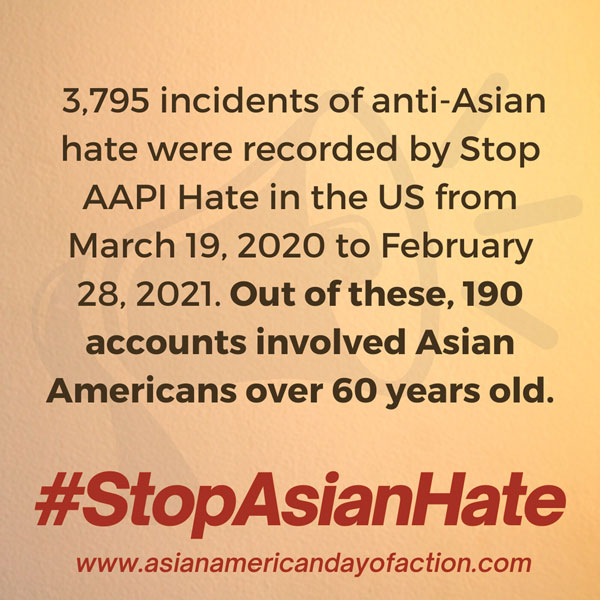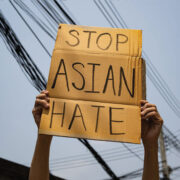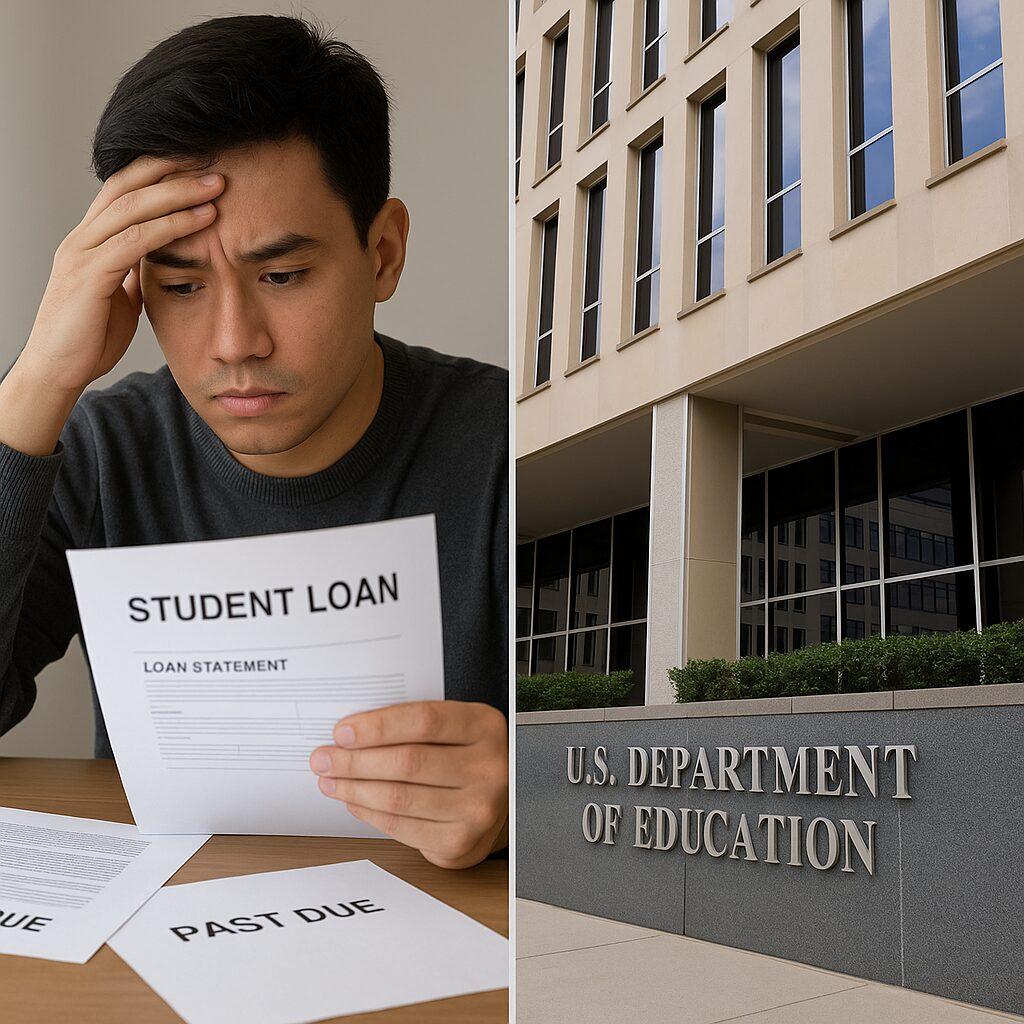
ASIAN American lawmakers and community leaders are observing #StopAsianHate Virtual Day of Action and Healing on Friday, March 26 in the wake of the Georgia shootings that killed eight individuals, including six Asian women, and as nearly 3,800 anti-Asian hate incidents have been recorded across the country.
The initiative, first started by Rep. Grace Meng of New York and California Assemblymember Evan Low, encourages community members, corporations and organizations to speak up and condemn the rise of anti-Asian attacks and discrimination on social media by using the hashtag #StopAsianHate.
“We are asking everyone throughout the country to stand up for Asian Americans during this difficult and challenging time for our community. Everyone must do their part to end these acts of hate — call it out, prevent it, report it. We need every person to step up and stand against it,” Meng said in a virtual press conference on Monday, March 22.
March 26 was chosen as it marks when the U.S. passed its first naturalization law, the Naturalization Act of 1790, prohibiting non-white individuals from becoming citizens.
“Over 200 years later, Asians in the U.S. are still suffering from the effects of the racism our country was founded upon. Asian elders are being physically assaulted in the streets. Asian American children are afraid to go back to school. We are still grieving the murders of 6 Asian women in a racially-motivated killing spree in Atlanta last week,” organizers wrote in an online toolkit available at www.asianamericandayofaction.com.
Organizers are also emphasizing that the hate against Asian Americans fueled by the pandemic is “not new.”
“While COVID-19 has brought a wave of violence towards our communities, anti-Asian racism is deeply rooted in American history,” they said.
Stop AAPI Hate, a national coalition that tracks anti-Asian American discrimination, reported on Tuesday, March 16 that from March 19, 2020 to February 28, 2021, it has received 3,795 firsthand incidents of racism and discrimination from all 50 states and the District of Columbia.

Of that number, 503 incidents took place in the first two months of 2021 alone.
Chinese are the largest ethnic group (42.2%) that say they’ve experienced hate, followed by Koreans (14.8%), Vietnamese (8.5%) and Filipinos (7.9%), Stop AAPI Hate found.
Women are 2.3 times more likely to report the incidents than men. Youths (those up to 17 years old) accounted for 12.6% of incidents, while 6.2% were experienced by individuals 60 years and older.
Verbal harassment (68.1%) and shunning (20.5%), which entails the “deliberate avoidance of Asian Americans,” are the top two types of discrimination reported.
There is also a list of actions individuals can take by supporting community-based social justice organizations and initiatives, such as Asian Americans Advancing Justice-Atlanta, Stop AAPI Hate, National Asian Pacific American Women’s Forum, AAPI Force and AAPI Women Lead or attending a bystander intervention training session.
Organizers caution participants to listen to local groups and the hardest-hit communities first.
“Continue to amplify the harms that Asian Americans are facing, but don’t override or silence their voices by pushing an agenda that doesn’t align with what the community needs. Let’s build a chorus of solidarity and ensure the Asian American community receives the support it needs to fight anti-Asian racism,” according to the toolkit.
Supporters can also sign a letter calling on the Biden administration to provide emergency relief to AAPI communities.
During a meeting with President Joe Biden and Vice President Kamala Harris on Friday, March 19, Atlanta-based AAPI elected officials and community leaders presented a letter, signed by over 180 national AAPI organizations, calling for emergency safety and relief by committing $300 million — $100 million toward community-based solutions to address the most vulnerable members of hate and bias, including women and the elderly, and $200 million for long-term safety and recovery.
Biden urged Congress to “swiftly” pass the COVID-19 Hate Crimes Act, legislation introduced by Sen. Mazie Hirono (D-Hawaii) and Rep. Grace Meng (D-NY) that addresses the rise of hate crimes and violence targeted against the AAPI community by assigning a point person at the Department of Justice to expedite the review of COVID-19-related hate crimes.
The bill would also provide support for state and local law enforcement agencies to respond to these hate crimes, and coordinating with local and federal partners to mitigate racially discriminatory language used to describe the pandemic.
In his first week in office, the president signed an executive order on Jan. 26, which included directives to remove language in federal actions or documents that would contribute to xenophobia and racism against the Asian American and Pacific Islander population and for the Department of Justice to expand its collection of data and public reporting regarding hate incidents against community members.
“Now, it’s time for Congress to codify and expand upon these actions — because every person in our nation deserves to live their lives with safety, dignity, and respect,” Biden said in a statement.








“Supporters can also sign a letter calling on the Biden administration to provide emergency relief to AAPI communities.”
Where do we sign this letter? I need specifics to take action. Thank you. Wendy K.